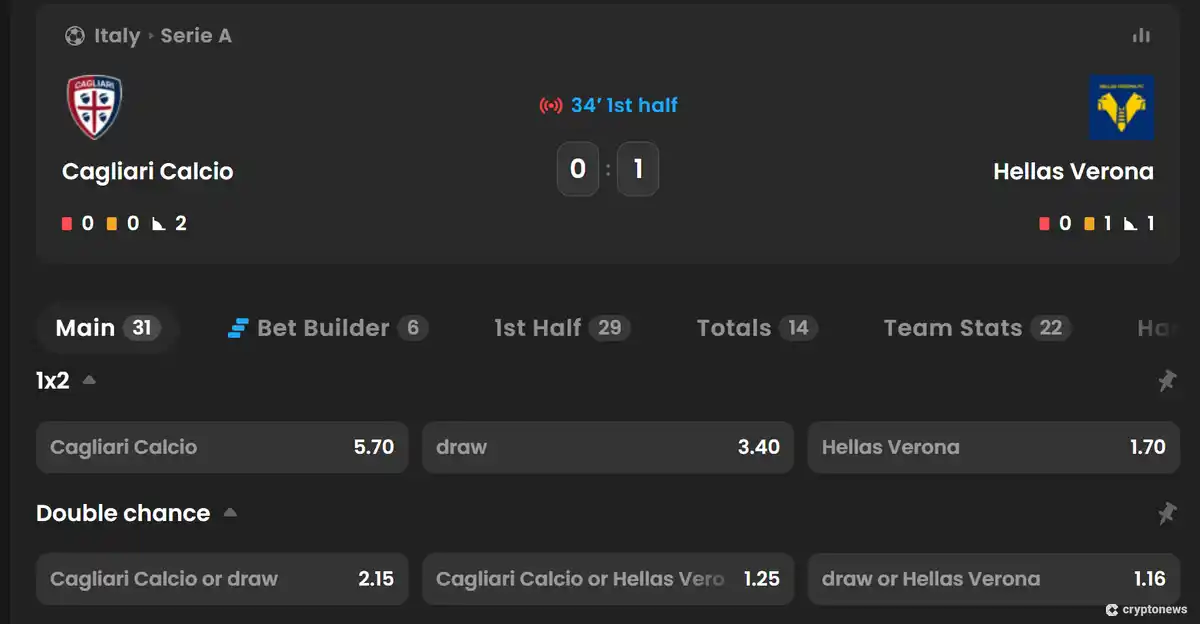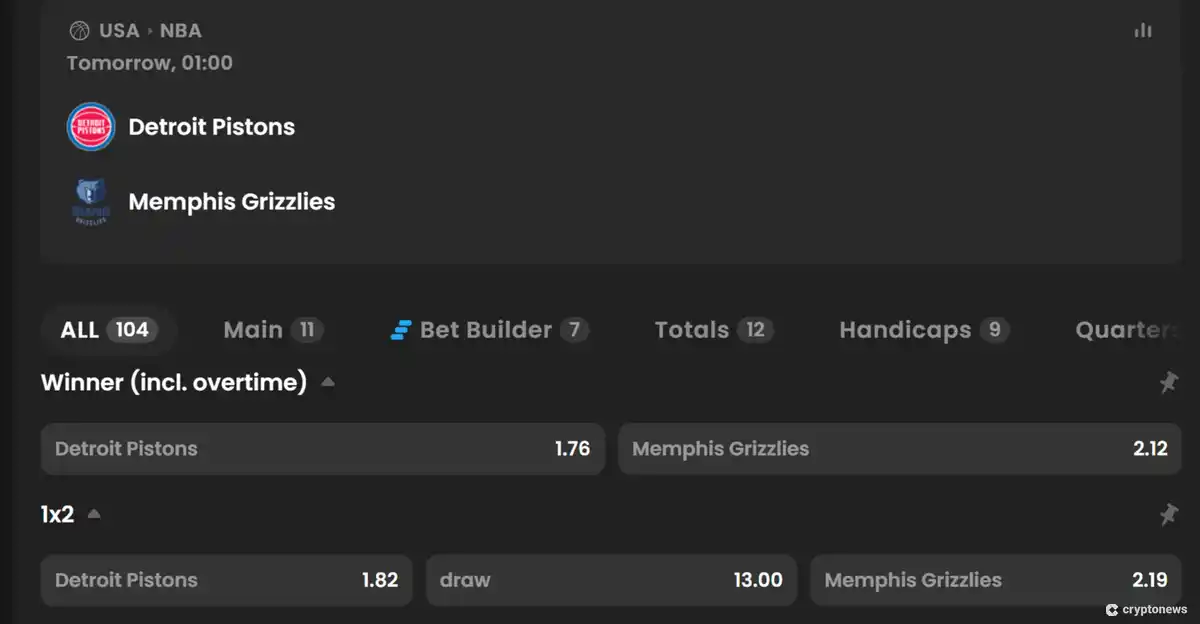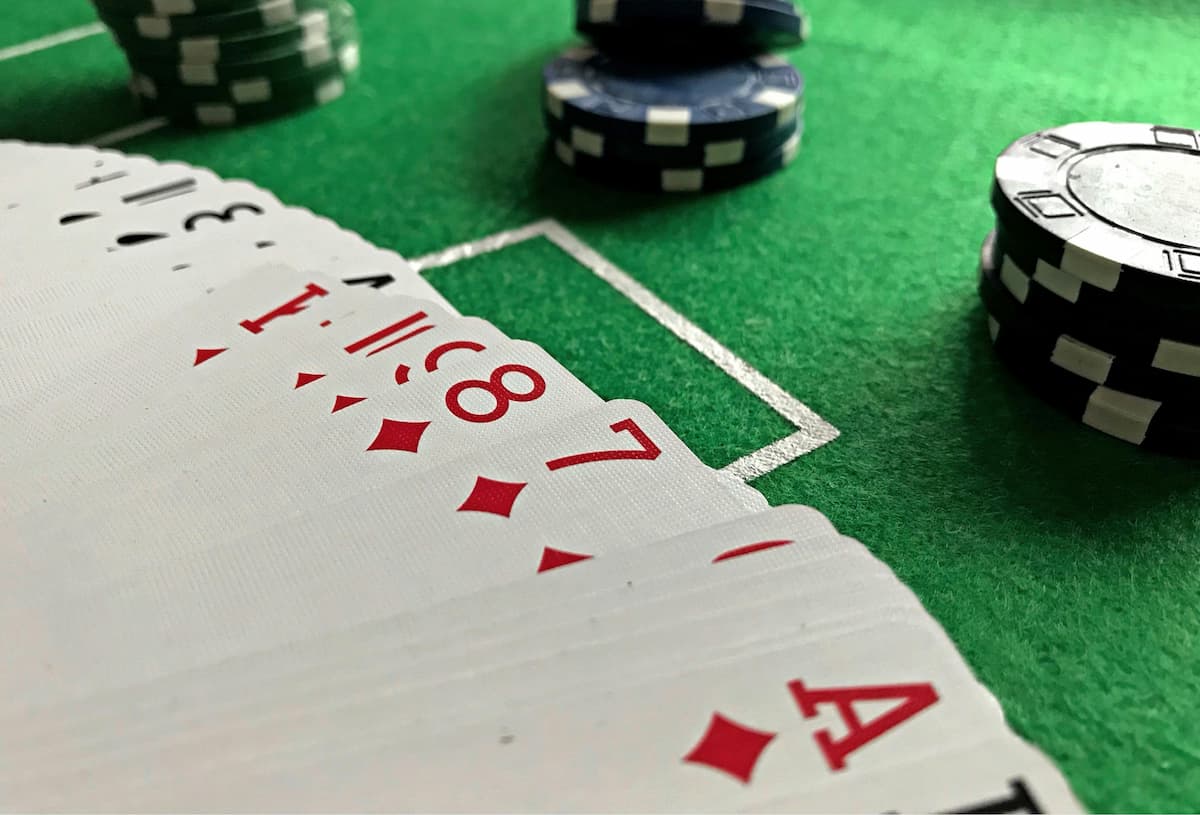Understanding the Role of Bookmakers in Sports Betting
The sports betting industry is far more complex than many people realize. While you may think you can simply put cash down on your favorite horse in the race, much more goes on behind the scenes, which brings us to bookmaking.
What is a bookmaker, what do they do, and how do they affect the outcome of your bet?
Bookmakers act similarly to casinos but for the sports betting world. The bookmaker can create odds for different matches, accept player bets, and pay out funds to winners after the game. Bookies, for short, essentially maintain everything revolving around sports betting wagering to ensure that balances remain even for winners and losers.
If this sounds confusing, don’t worry. We’ll cover everything you need to know below, like how they profit and determine the odds.
What Do Bookmakers Actually Do?
Back in the day, people bet on sports by simply betting with each other. It was a simpler time. In the 20th and 21st centuries, though, the United States strictly prohibited sports betting aside from in Nevada because of Las Vegas, of course.
Because of this, a black market for sports betting emerged over time, creating the need for someone to facilitate the market. Those “someones” became bookmakers.
Some bookies developed large-scale networks of organized crime, while others simply accepted a few wagers from friends and family members. Over time, the sports betting industry grew so large that the Supreme Court had no option but to lift the Professional and Amateur Sports Protection Act by 2018, allowing individual states to determine whether or not they permit gambling.
Fast forward to today, and the global sports betting market is worth $3 trillion, over 30 U.S. states have legalized sports betting, and bookmakers are still facilitating this roaring market.
So, what does a bookie do?
Bookmakers open betting markets on different sporting events and then set odds based on potential outcomes that could occur. Next, they facilitate wagering by accepting bets and paying out winners.
Because of the modern digital era, most bookmakers exist online now to provide bettors with easy virtual betting platforms. Bookmakers often offer betting on exciting events beyond the world of sports, like political outcomes, Oscar winners, half-time performances, and more.
How Bookmakers Set Odds
We know what you’re wondering: How does a bookie work? Bookmakers want to make money just like everyone else, so they need to ensure that the odds are in their favor. To do so, they often employ professional statisticians or use complex equations to determine the odds of winning any given sporting event.
While these statisticians can use advanced software to inform their decisions, they still must be extremely knowledgeable in mathematics. Such teams are responsible for setting odds and lines that affect not only player outcomes but whether or not the bookmaker will profit.
To explain odds in the most simple terms, bookmakers assign probabilities to all possible outcomes, with the total adding up to 100%. For example, in a football game, the two possible outcomes of the game could be a 35% chance of Team A winning and a 65% chance of Team B winning.

Understanding Odds and Their Calculation
To calculate odds, bookmakers and their teams usually underscore whichever team they believe may win the event. In general, higher odds suggest a lower likelihood that that team will win, meaning you could receive a higher payout for betting on the underdog team.
Bookmakers have access to rich databases filled with sports data to help them inform their calculations. As the event comes closer, they can adjust their spreads based on the bets they receive.
You’ll find that odds for the same sporting events are usually about the same across bookmaker websites. This typically occurs because bookmakers follow the same formulas for calculating their odds.
It might seem strange when you notice that odds can change within the minutes leading up to the game, so let’s discuss the different factors that can influence these calculations at any given time.
Factors Influencing Odds Setting
Bookmakers don’t just look at raw data when setting odds and spreads. Many factors affect how humans perform during sporting events, so bookies consider all of these factors when setting odds.
First off, bookmakers look at the team’s recent performance and historical data to determine whether or not they’re favored to win. Then, they look more closely at individual players and how they may match up against each other during the game. If they discover sudden injuries or suspensions, this can greatly sway the odds of one team winning versus the other.
Bookmakers also consider which team has the home-court advantage and how well the weather will favor them in this location. Statisticians can also look at which team the general public typically favors when they play head-to-head.
As game day approaches, bookmakers keep their eyes on market fluctuations and adjust the odds accordingly. During the game, bookmakers offer in-play bets, with the odds updating in real time. This fast-action movement typically reflects the bettor market rather than all the factors we just went over.
Profit Margin
Now that we’ve answered, “What is a bookmaker in gambling?” let’s go over how they make money. Bookmakers charge fees on all the bets they accept to ensure that they can take home commissions. The fee, also known as the vigorish (or vig), allows bookies to have higher incoming profits than outgoing payments for bets they owe to winners.
To achieve a successful profit margin, bookmakers have to adjust the odds in a way that balances the amount of people betting on losses versus wins. This calculation, on top of the vig, allows them to capitalize and turn a profit.
Most bookmakers take home around 10% in their profit margins. For big games, like the Super Bowl, though, bookmakers may charge higher fees of around 20% or more.
The Vigorish (Vig) Explained
To truly understand how bookies make their money, let’s look at a detailed example of the vig, which many refer to as the bookmaker’s juice. The main reason many struggle to make big earnings in sports betting is because of this overlooked premium that all players must pay.
Let’s say you’re betting on a hockey match between teams A and B. For the sake of this example, we’ll say the teams have perfectly even odds of winning. Team A and B’s odds would be 50/50, 2.00, or +100, depending on which model you prefer to follow.
While these odds seem fair, the actual odds that the bookmakers set won’t appear nearly as forgiving. Rather than seeing 2.00 decimal odds for each team, you’d likely see something around 1.91 for both Teams A and B. So if you wagered $10 on Team A, for example, you’d stand to win $9.10.

Now, let’s say Team A does win. Anyone who bet on Team B will lose their $10 while you get to celebrate your $19.10 earnings (including your $9.10 initial stake and a $10 payout from the loser). The bookmaker, on the other hand, would profit $0.90 even though they wagered the same amount on two outcomes with equal odds.
Essentially, the bookmaker came out ahead because they built in a profit margin. This profit margin causes the bettor to receive smaller payouts and skewed betting lines.
The above example displays how the vig works on even odds. In reality, bookmakers must also calculate odds to keep their books balanced for fair payouts while also maintaining their profit margins, so you can see why being an expert mathematician is key here.
Risks in Bookmaking
Bookmaking may not be the risky business it was in the 20th century, but it’s still nowhere near risk-free. From losing profits to ending up with a lawsuit, bookmakers face a field of risks. While being a mathematician could help you mitigate some risks associated with odds and profit margins, statistics don’t even touch the tip of the iceberg.
One major concern that bookmakers face is fraud. For example, in 2022, Betfred faced $3.5 million in fines for accepting tens of millions of pounds from gamblers without performing the required safety checks to prevent money laundering.
Beyond fraud, digital bookmakers (which dominate the industry) must battle cybersecurity concerns. Even the most minor data breaches or hacking incidents can quickly crumble an entire institution, requiring bookmakers to pay millions back to bettors. Cybersecurity attacks can ruin bookmakers’ reputations while threatening their finances.
The most obvious risk bookmakers face, though, is insufficient liquidity. If the house doesn’t have enough funds to pay winners, the whole process collapses.
The best way bookmakers can mitigate all of these risks is by investing in the proper tools. For example, cybersecurity insurance and fraud protection can prevent some financial issues, while advanced statisticians can ensure that bookmakers always have enough liquid cash to prevent collapses.
Adjusting Odds Based on Betting Patterns
Bookmakers must stay flexible if they want to reduce their risks. All bookies adjust odds based on real-time patterns to ensure the best possible outcomes. For example, if a lot of people are betting on the favored team during the few minutes leading up to the game, bookmakers may increase the odds on the underdog.
Bookmakers know how to locate and analyze many patterns, from bettor preferences and player behaviors to favorable market conditions. They use these patterns to develop odds that ensure their profits.
Different Types of Bets and Their Profitability
Sports betting involves seemingly endless types of betting, all the way down to what color a team may wear. Some of these bets are riskier than others, making some more profitable for bookmakers.
Bookmakers make it seem that betting on complex wagers will increase your odds of winning. Of course, this is simply a marketing tactic to increase their odds of profiting.
A single-win bet, the most straightforward of all, is typically the least risky and the least profitable for bookmakers. On the other hand, complex bets involving multiple layers have increased risks and, therefore, are more profitable for bookmakers. For example, bets like doubles, trebles, or accumulators require risky, layered bet slips that typically allow bookmakers to profit more.
Some sports also provide higher ROIs, on average, than others. According to data from Sports Betting Dime, the sports leagues with the highest ROIs for betting on the moneyline, against the spread, or under/over include college football and basketball, the NFL, the NBA, the NHL, and MLB.
Spread Betting and Its Impact on Bookmaker Earnings
We’ve mentioned spreads, but what are these, and how do they affect payouts? Spread betting is the most popular type of sports betting, as it levels the playing field between the teams.
Rather than simply betting on which team will win or lose, as you would in a moneyline, a spread positions one team as the favorite and one as the underdog, defining a line between the two. This line subtracts points from the favorite’s total to provide more balanced betting.
For example, if Team A is favored to win by -8 against Team B, that means Team A will need to score at least eight more points than Team B for them to “win.” If you bet on Team A, and they score exactly 8 points above Team B, you will get your bet back and no more, but if they score more than 8 points, you will win your bet.
Spreads improve the profitability for underdog bettors and bookmakers because they provide improved odds for anyone betting on the underdog. In the example above, the underdog doesn’t even need to win the game for underdog bettors to win; they simply need to lose by fewer than eight points.
Challenges in Bookmaking
All of the challenges in bookmaking revolve around the risks of the job. You must have a lot of knowledge of the sports markets you’re betting in while having a deep understanding of mathematics, statistics, finances, and more.
At the same time, all the knowledge in the world still cannot prepare you for the unforeseen outcomes of sporting events, so you must have enough liquid cash and profit margin prepared for errors.
How Bookmakers Leverage Bettor Psychology
Bookmakers often leverage bettor psychology by taking advantage of gambling addictions, losses, superstitions, and biases. For example, many bookies provide additional bets you can add to your wager upon losing your initial one. From an outside perspective, this may not seem like a smart financial decision, but bookmakers present the option as an opportunity to recoup your losses.
From providing promotions for depositing more money to adjusting odds based on bettor habits, bookmakers know how to encourage players to increase their comfort in risk-taking.
Legal and Regulatory Aspects
As of 2024, sports betting is legal in 37 states. Despite more states legalizing gambling each year, bookmakers still face legality concerns. Legislation changes frequently, so bookmakers have to keep up with all of the certification requirements, tax laws, regulations, and more to ensure that they’re operating legally.
To stay compliant, sports betting websites must follow KYC (know your customer) and anti-money laundering frameworks while acquiring consent from players. Beyond this, many websites use security features like SSL encryption to prevent data breaches.
Final Thoughts
So, what is a bookmaker in betting? Bookies facilitate sports betting by adjusting odds for balanced outcomes, collecting wagers, and paying out winnings. As with everything in the gambling industry, the carefully calculated job comes with high risks – but also, potentially, high rewards.
FAQs
What Is the Role of a Bookmaker?
The role of a bookmaker, or bookie, is to facilitate fair sports betting. Bookies adjust odds to ensure that an even number of wagers win and lose for balanced funds. On a day-to-day basis, bookmakers are in charge of accepting or placing bets and then paying out winnings, similar to traditional casinos.
How Does a Bookmaker Make Money?
Bookmakers make their money by charging fees on top of wagers, also known as the vigorish (vig). Bookmakers can capitalize on multiple wager fees like the vig to take home commissions of around 10% to 20%. Bookies can usually cash out their percentages at the end of the week.
Why Is Bookmaking Illegal?
Bookmaking is only illegal if the bookie facilitates betting in a state that prohibits gambling. Gambling laws are determined by the state, so bookmakers can only operate legally in certain areas, even if they are providing their services online. As of 2024, sports betting is legal in 37 states.







 Nick Pappas
Nick Pappas 

